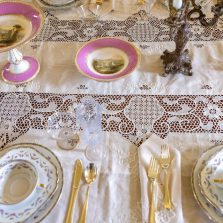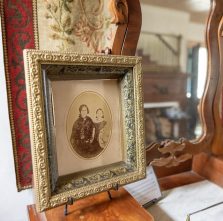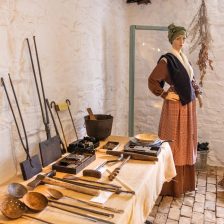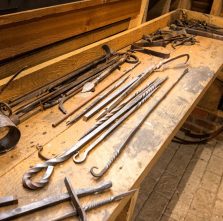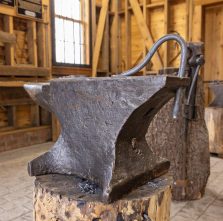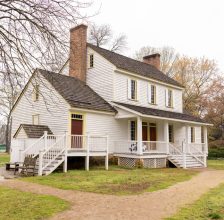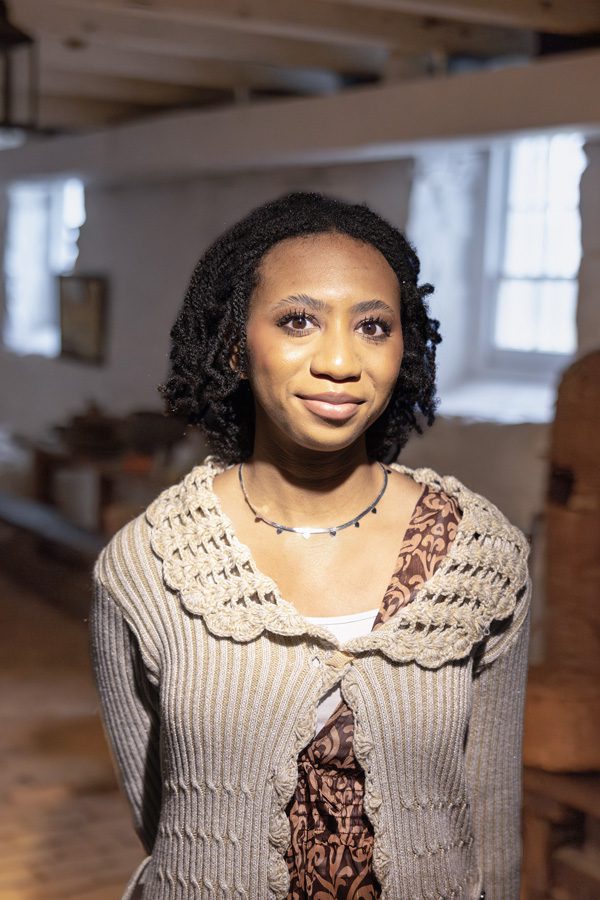SPACES SPEAK
Genealogical research led by Alyssa Brady, the inaugural graduate in the Master of Science in Architecture Critical Heritage Studies program, deepens the significance of Historic Rosedale
Written By: meg whalen
Photos by: Ryan Honeyman
Charlotte is infamous for tearing down its past. Our vociferous “New South” city, eagerly focused on the future, has kept few buildings from yesteryear, and those that remain often have had their histories muted.
But graduate student Alyssa Brady ’24 M.S. is convinced that as the city moves forward, we must bring our stories with us — the easy stories and the hard ones, the loud and the quiet.
This May, Brady became the first student to earn a Master of Science in Architecture concentrating in critical heritage studies. Completing a Bachelor of Arts in Architecture from UNC Charlotte in 2022, she entered the new master’s degree track, and in fall 2023, she began an internship at Historic Rosedale, a former plantation that sits peacefully among the commercial confusion of North Tryon Street.
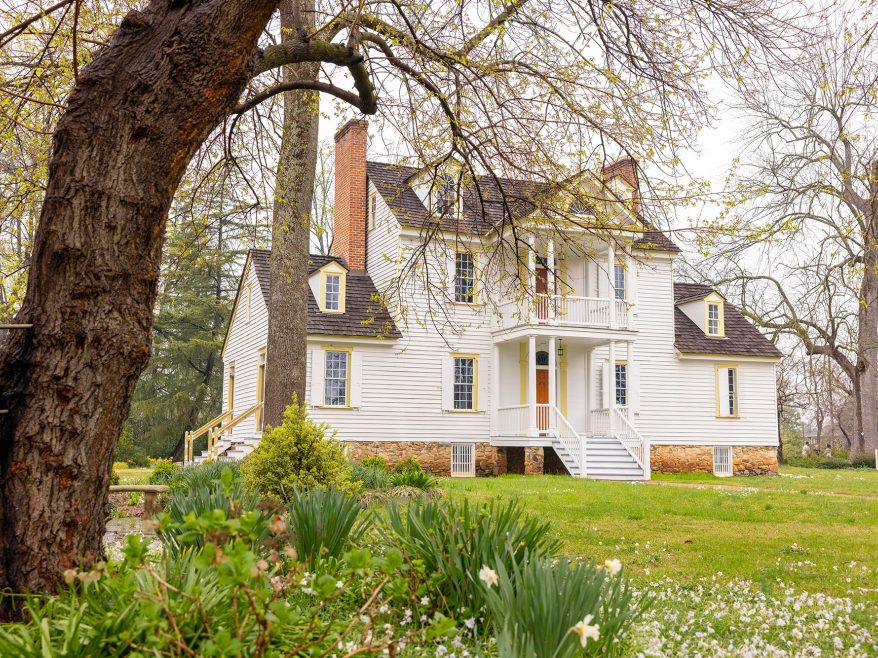
While Rosedale was not a cash crop plantation, more than 40 enslaved African Americans labored there before the Civil War as well as free Black tenants and workers in the decades after, said John Cooper, coordinator of Rosedale’s African American Legacy project. That initiative began in earnest in April 2021 with the mission “to expand and promote the truthful, compassionate and equitable presentation of the African Americans — both enslaved and freed — who lived and worked at Historic Rosedale.”
At the core of the project is the development of a vibrant network of relationships with descendants of Rosedale’s African American forebears, people all across the United States who can help fill in erased histories and who, themselves, have life stories to celebrate.
“That’s something we pride ourselves on,” said Cooper.
Who gets to tell the stories?
Bringing those voices forward is also key to the Critical Heritage Studies program, which asks the question, “Who gets to tell the stories?” of a particular place, said Brady. The interdisciplinary degree — the only of its kind in North Carolina — “has been an eye-opener,” she said, as she has plunged herself into the disciplines of public and digital history.
Brady’s primary task has been the construction of a digital family tree that she, Cooper and Historic Rosedale’s African American Legacy Committee hope one day will be as vast and intricate as the site’s magnificent chestnut oak, one of several “treasure” trees that tower over the Rosedale mansion. When Brady started her internship, there existed only large handmade family trees on poster board. The web-based version, with descriptions and pictures, will be a “vital resource,” said Cooper, “making this information accessible so people know about Rosedale and our African American descendants — who they were and their accomplishments.”
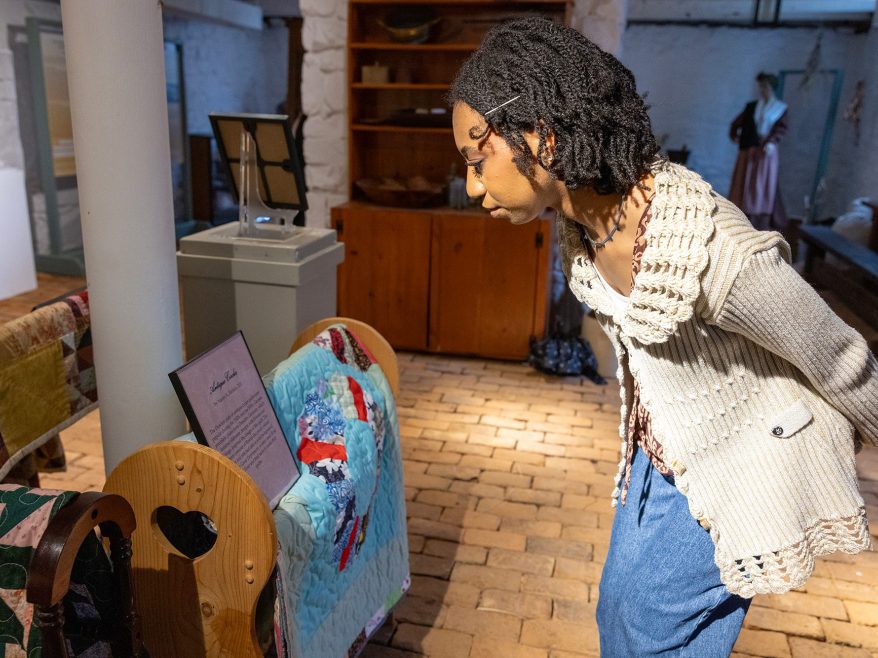
At the crown of this ancestral oak are Nat and Agnes Caldwell, both born around 1804 and brought to Rosedale by Dr. David Caldwell when he moved onto the property in 1833. Nat was an accomplished blacksmith whose craftsmanship brought steady income to the household. He and Agnes had several children, five of whom have been positively identified. Their grandson George Washington Caldwell (1850-1932) studied at his grandfather’s anvil and eventually owned blacksmith shops on North Tryon Street and Providence Road.
Genealogical research: The work is never complete
Brady’s activity has extended beyond the design and development of the digital genealogy to include research into the family line.
“It’s like detective work,” she said, describing how she has scoured resources as wide-ranging as the oral history collection at J. Murrey Atkins Library and social media platforms like Facebook to find clues that will lead to new names and narratives. “We’re discovering people every day,” she said. “When it comes to research, the work is never done. There’s always more to learn.”
Although Brady’s internship officially ended in December, she remained committed to the project and continued to work through the spring semester. “Alyssa’s very inquisitive, meticulous and detailed,” Cooper said. “She wants to make sure the product is a good product.”
Last November, Brady met Tamia Allen Williams, a fifth-generation descendant of Nat and Agnes Caldwell. At a public program at Historic Rosedale, Williams spoke movingly about the value of knowing your ancestors — further confirmation, Brady said, that an understanding of the past is vital to the integrity of our future.
“Everyone deserves to know where they come from.”
